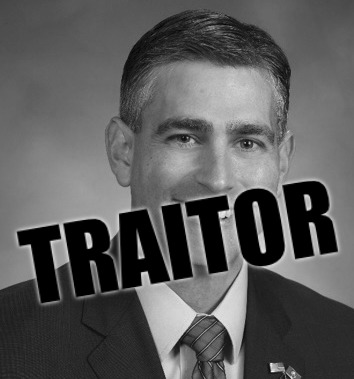When Donald Trump’s administration appointed individuals with little to no experience in national security to some of the highest offices, everyone saw the writing on the wall. The airstrike in Yemen on March 15, 2025, which killed 52 civilians, is the direct result of placing unqualified political appointees in charge of life-and-death decisions. This disaster is not just a policy failure but an indictment of an administration that elevated loyalty and ideology over competence—and civilians paid the ultimate price.
Vice President J.D. Vance, National Security Advisor Mike Waltz, and Secretary of Defense Pete Hegseth, all of whom lack the professional qualifications for their roles, coordinated the strike on a Houthi leader’s apartment using a Signal group chat. A Signal group chat. As if that wasn’t bad enough, a journalist from The Atlantic was accidentally included in the conversation, exposing the administration’s utter lack of operational security and its amateurish approach to decision-making. These officials were, and remain, unfit for their jobs—something that was obvious to anyone paying attention when they were confirmed.
The strike itself was an unmitigated disaster. Rather than executing a precise military operation, the administration greenlit an airstrike on a densely populated residential building, killing innocent men, women, and children. The Geneva Conventions explicitly prohibit indiscriminate attacks and require measures to minimize harm to civilians, but those provisions were blatantly ignored. The officials involved either didn’t care or didn’t know enough to weigh the consequences of their actions.
These are not seasoned military strategists. Waltz, a former congressman, has no meaningful experience as a national security advisor. Pete Hegseth, known more for his appearances on Fox News than for any military acumen, was handed the reins of the Pentagon. And J.D. Vance, an author-turned-politician, has no credentials that remotely qualify him to be involved in high-stakes national security decisions. Their collective lack of expertise was always going to lead to catastrophe—it was only a matter of when.
Human rights organizations have condemned the strike as a potential war crime. Amnesty International and Human Rights Watch have pointed to the administration’s apparent disregard for international law, particularly the principle of proportionality, which requires military planners to ensure that the anticipated gain of an attack outweighs the risk to civilian lives. The Yemen strike failed this test spectacularly. Civilians were not collateral damage—they were the inevitable victims of unqualified leaders making haphazard decisions.
What’s perhaps most galling is that no one is surprised. These appointees were controversial from the start, with critics warning that they lacked the expertise needed for their roles. Their confirmations were widely seen as political theater rather than serious attempts to ensure the country’s security. The Yemen strike is proof that those warnings should have been heeded. By putting ideological loyalty above competence, the Trump administration set the stage for tragedies like this one.
The inclusion of a journalist in the Signal group chat only adds to the humiliation. The use of a commercial messaging app to coordinate a military strike demonstrates an astonishing level of recklessness and naivety. It’s not just unprofessional; it’s dangerous. The breach exposed sensitive details of the operation and confirmed what many suspected: the people running the show have no business being there.
President Trump’s response has been predictably dismissive. He called the breach a “glitch” and defended the strike as necessary to combat terrorism, ignoring the fact that his own administration’s incompetence directly caused the civilian casualties. Meanwhile, Secretary Hegseth attempted to shift blame by attacking the journalist who exposed the incident. These responses reveal an administration more focused on avoiding accountability than on grappling with the consequences of its failures.
The global fallout has been swift. Allies and human rights advocates alike have condemned the U.S. for its blatant disregard for the Geneva Conventions. The incident undermines America’s credibility on the international stage and sets a dangerous precedent for other nations. If the U.S. won’t follow the rules, why should anyone else?
The deaths of 52 civilians in Yemen were not just an unfortunate byproduct of war—they were the result of deliberate decisions made by unqualified officials who never should have been in positions of power. This tragedy was entirely predictable, and it will remain a stain on the administration’s record. Those responsible must be held accountable, and the American people must demand leaders who are chosen for their competence, not their loyalty. Until then, this kind of avoidable disaster will continue to haunt U.S. foreign policy.





